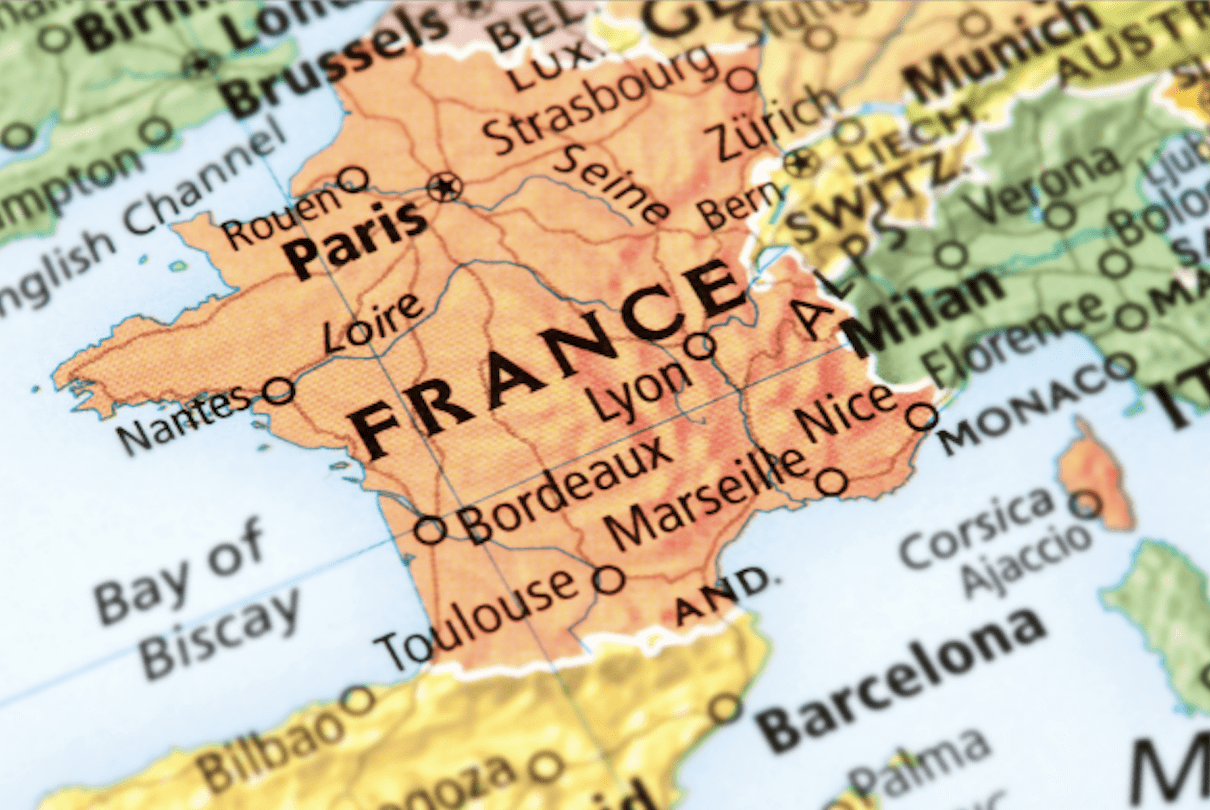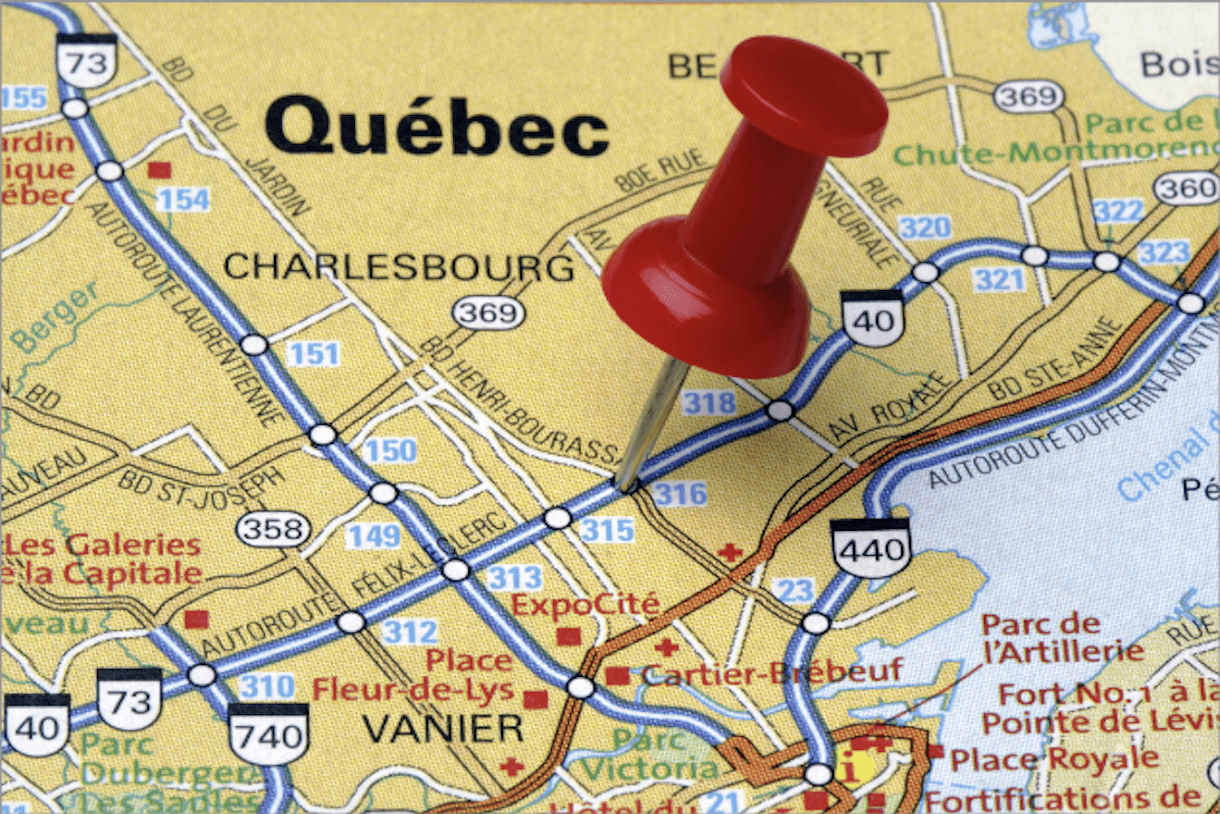If you’re looking to learn French abroad, expanding your vocabulary is one of the most effective ways to improve fluency. Once you’ve got some basic grammar under your belt, you can hugely increase your ability to communicate in different situations by building up vocabulary in thematic areas. It also figures that if you want to understand native speakers better, it is much easier if you know the words they’re saying!
Thanks to French immersion language programs, you have access to a range of opportunities to develop your skills in authentic settings. While classroom instruction is essential, nothing beats the experience of learning French in France or another French-speaking region, like our learn French in Canada option in Québec. These are the places where real-life interactions and immersion will reinforce your language development.
However, compared to 20 years ago, English proficiency in France has improved significantly, particularly in major cities.
Many people in the service sector now speak English confidently – almost too confidently! In Paris, for example, waiters, shopkeepers, and hotel staff often switch to English automatically on hearing the slightest accent, which can be really frustrating if you’re trying to practice French.
So, to have the best chance of building out your French vocabulary, you’re going to need to think this through. This article will guide you through the best strategies for building your vocabulary while enjoying a French language immersion experience abroad.




Immerse Yourself in the French Language By Adapting To Your Location
To have truly immersive conversations, you’ll need to be intentional about where you go. If you’re dead set on Paris, you’re going to need to work smart! Smaller towns, less touristy areas, and local neighborhoods offer the best chance to engage in meaningful French exchanges.
Here’s how you can make the most of your time in a French language immersion program:
Choose your location wisely
If you’re studying French in France, consider destinations beyond Paris, where English is less dominant. Cities like Lyon, Montpellier, Aix-en-Provence, and Rouen provide more opportunities for authentic conversation. Check out ILI’s guide to French study abroad programs in France.
Pick your time of day for cafes and restaurant visits
Serving staff in France – particularly in big cities – are real professionals, meaning they’re efficient, work a lot of tables and are fast.
I suspect part of the reason they have developed their English skills is that it means they can continue to work at their usual frenetic pace without having to wait for you to piece together your sentence in your very respectable intermediate French.
So how do you get round this? Check when service starts and ends, and then aim for the beginning of service before the rush or towards close when most people have finished. If you’re the first one through the door, they’re naturally going to have more time for you. Same as the tables start to clear.
Keep going back
If you like the food in a place and you’re there for a couple of weeks, consider going back regularly. If you want to keep trying new places, you could at least aim to have your first coffee of the day in the same bar. After a few days, you’ll probably get recognised by the owner or their regular server, and that familiarity will help to break the ice and start up a conversation.
Think in French!
That might seem like crazy advice because surely thinking in French is something that happens only after months or years of French study in France, right? Well yes, but if you take this as meaning think it rather than saying out loud, you might get what I mean.
By mentally narrating your day or describing what you’re seeing all around you, you’ll practice and repeat the words you know, and you’ll realise what vocabulary you’re missing. If it’s all happening in your head – as opposed to during a real, live conversation – you have the chance to look it up and fill out your vocabulary (see my point below on effective vocabulary learning techniques).
Utilize Effective Vocabulary Learning Techniques
We’re assuming that you’re going to be learning French in an immersive setting here, where you’ll be given guidance from a teacher. Nevertheless, having your own structured vocabulary-building techniques, and knowing already what works well for you (and what doesn’t) will help you progress faster. Here are some of the best ways to learn French vocabulary:
Keep a vocabulary journal
Write down new words and review them daily. It’s tried and tested and the act of writing, for some people, will help to get that word into your head, then into active usage in your conversations. Don’t hesitate to draw little pictures, underline in different colours, use different pens etc. as it all helps to anchor that vocabulary gem, and make it more memorable and easier to recall. For extra challenge, write both vocabulary and definitions in French, so you don’t burst the language bubble.
Practice active recall
Instead of passively reading lists, challenge yourself to remember words in different contexts. Set yourself a vocab test by covering up half of your book. Or when you’re more advanced, walk around mentally pointing to objects and try and get yourself to pull up the vocabulary in real time. For extra kudos, actually point to them and shout out the word! Who cares?
Learn words in phrases
Instead of memorizing individual words, learn common expressions and idioms. I think it is important to still understand how a phrase is put together, and what grammar or structure underpins it. But that’s not how we learned our native language. Sometimes you learned a whole phrase as a kid, and only saw it and understood it written down years later. That makes it fine in my book to grab phrases as phrases and use them in blocks. Once you’ve said the same thing to 50 people, it’ll be locked in for good, and you’ll appear more fluent for it.

Mess it up
There is a common cognitive psychology phenomenon called retrieval failure which focuses on how your brain’s neural pathways are strengthened when you struggle to find a word you need. Psychologist Robert Bjork called it desirable difficulty. In short, if you don’t know a word, or you struggle to recall one you once knew, the mental disruption it causes makes your brain perceive the word as more important and it is more likely to be recalled afterwards.
Even better, when you really mess it up in a live conversation, possibly saying something totally inappropriate or just freezing, the feeling that linguistic failure brings about, leads to cognitive frustration. As a result you’ll really remember the context, the situation, the embarrassment but your brain will helpfully attach it to the word or phrase you needed (and subsequently looked up). The more you fail with language, the better you become. So do not hold back!
Connect French Vocabulary to the Culture
Understanding the culture behind the language makes vocabulary more meaningful and it’s just another way of contextualising what you learn so those neural pathways strengthen up.
The huge benefit of studying French abroad is that you get a generous serving of cultural insights. Some will be laid on by the school, others will be much more nuanced. We’ve already mentioned a coffee in your local bar first thing in the morning. Here are some other classic things to do in France which will give you cultural situations on which to hang some vocabulary.
Buy a baguette in the morning.
Queue up with locals. Overhear what they say. Steal their very words, then use them when it’s your turn to speak. Take a photo of all the labels in front of the different types of bread. Look them up when you get back home and ask for something new tomorrow!
Faire une promenade (go for a sauntering walk)
You’ll still see older French people dressing up a little more for a walk round the local park, especially on a Sunday. Afterwards, head for a Salon de Thé for pastries like macarons, madeleines, or tartelettes. Sit on your own and overhear other people’s conversations. Note down what you think you hear. For sheer, spy-like audacity points, I dare you to secretly record snippets of conversation on your phone to listen back and translate.




Do what you love doing, but in France
Whether you love rock climbing, mountain biking, painting, art galleries, theatre, opera or rock concerts. My perpetual advice is to do your thing in France. This is the best way to learn the equivalent French vocabulary for the topics you’re already passionate about. That will mean you can then talk to French people (or at least know what they’re talking about) when discussing the very thing that brings you to life. What could be better?
Leverage Technology for Vocabulary Building
Technology can be a valuable tool in your French language immersion course. Here are some ways to integrate it into your learning:
- Language apps – Platforms like Duolingo, Babbel, and Rosetta Stone provide structured lessons. At some point we’ll look at the difference between the apps, and ILI.
- Interactive media – Websites like TV5Monde and FluentU offer videos, quizzes, and exercises tailored for language learners.
- Gamified learning – Apps such as Clozemaster turn vocabulary building into a fun challenge.
And of course, with its own special paragraph, AI:
Using AI to help you boost your French vocabulary
Even if you fear that your friendly AI chat bot will one day sell your deepest secrets to the highest bidder, right now you can probably still trust it with your French vocabulary. Here are just a few great things you can ask it to do with you – whilst you’re building up to your next real conversation.
- Tell it what you’ve learned and ask it to test you on it
- Ask it for new words on a theme that excites you
- Get it to create a short listening comprehension on a chosen topic, or have it generate some news headlines for you to understand
- Ask it to be your teacher (tell it your level, or give it feedback to help it adjust) and chat to you to reinforce specific vocabulary.
Seek Feedback and Practice Regularly
If you can practice regularly, then great. Not everyone can, and more importantly in my opinion, don’t beat yourself up if you can’t. That’s not the ILI way! Be kind to yourself and strike a balance between giving yourself a degree of challenge and regularity, but relax if you miss a day or two. Life is busy.
If you’re not feeling like actively learning your vocabulary, ask Chat GPT to talk to you for 5 minutes. Tell it to gently remind you what tricky words mean – your brain likes to get it right and gives you little dopamine rewards which again, make learning positive and sticky.
And get feedback. Ideally with a teacher or a native speaker, because the machines don’t always get it right, and we still need to know this all works on humans.
So remember, building your vocabulary is a super-effective way to grow your French language skills, and an immersion program in France gives you lots of fun ways to build your vocabulary by tying words and phrases into places, emotions and experiences. Be kind, be brave, embrace failure and enjoy success!
Ready to start your language-learning adventure? Explore ILI’s French study abroad programs to find the right fit for you!
